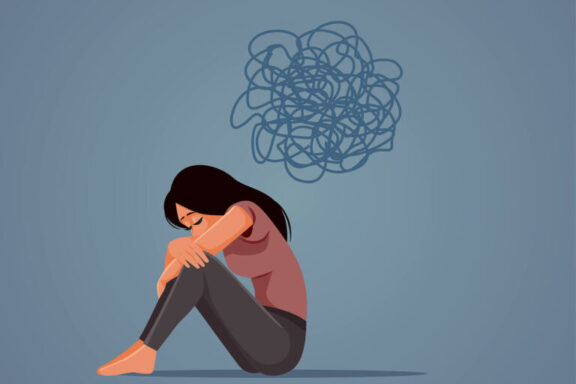What does peace feel like? Stillness without disturbance? Or standing on top of a mountain staring out at the sunset on the horizon? Better still, is it the feeling of fresh air or the sounds of nature? It feels like a moment of balance, where all you can do is be still as everything feels just right, any more would distort it and any less would diminish it. In this moment, you observe the experience.

I experience this when I go for a run, me and the road, one step after another, a breeze on my face and nature surrounding me. Or when I wake up before anyone else and enjoy the sound of my loved ones sleeping. This is not a place that one can stay for long. The forces around us are always acting and we have to respond. One needs to find balance within their daily activities to stay in the place of peace.
Living in peace
How can you encounter peace and gain what it has to offer? Firstly, look for peace in all aspects of your life. From peace of mind to world peace, peace can be sought and found in all of life’s many moments. The more we do so, the more peace will guide us to better experiences of all that we engage in. For example, when we pause and take a moment to reflect upon what’s going on around us, we are checking for that balance. There are those moments in the day when so many activities coincide and overwhelm me. When this happens, I pause and take a couple of deep breaths to help me find my centre again. Every time I do this, I see things more clearly, and my next steps then become clear, too.
When one has peace, it means they have control over their choices. One can decide to stay close to the place of peace and even intensify the experience of peace. With freedom of choice comes an increase in options, though not without their consequences in mind. This reminds me of when I had to learn to help with chores in the home to maintain peace. My upbringing taught me that the children and the mother do the chores within the home. Yet I realised , they are not the only family members that create the mess. Besides, house work is endless, and as long as there are people living there, there will always be work to do. When I made a conscious choice to start taking chores seriously, I was amazed by how much peace it brought me. It’s as though through this participation, we all acknowledged our vulnerabilities. We accepted that we can never win against the chores and learned that this was never the goal anyway. We learned what “good enough” chore management was for us.
Every member’s contribution became visible and appreciated. Had I stuck to what I learned, I would have missed this opportunity to unlock more peace in my home and for my loved ones. Spending time to reflect on why I was doing things the way I did unlocked a new opportunity for me and my family. So, now I know that when there’s chaos in my home, one place to refocus on are the chores. Living from a place of peace is possible. When someone does so, they embark on discovering how to create a life of peace. With a peaceful mind, one gets clarity of their reality. Now, they can see the consequences of their next choices. But, if the body in which this mind dwells is disturbed, then there is no peace.
Cultivating peace
So this means that to maintain peace of mind, they also need to cultivate peace of body. This would require them to care for their body in a way that increases the opportunity for peace to dwell in it. Or rather, in a way that reduces the disturbances that make it un-peaceful.
For example, what we eat and when we eat has a direct impact on how our bodies feel. After a big meal like Christmas lunch, people often describe being in a state of “food coma”. This is the body’s metabolism slowing down from the calorie overload, leading to a sluggish and weak feeling and an overwhelming need to rest. Another reason for “a need to rest” could be that when the digestive system is overloaded, the body allocates it more resources to facilitate the breakdown and uptake of the consumed nutrients.

If you pay attention to the “point of food coma”, you can discover how much it takes for you to get there. This presents more options and makes “eat yourself into a food coma” a choice. By controlling how much you put into your body, you can change how it feels.
Once we learn to obtain peace of mind and body, the home is next. It doesn’t matter how peaceful you are if your home has lots of unpredictable disturbances. Finding a good balance between the chaos and the order within a home can lead to a peaceful place. Like Professor Jordan Peterson likes to say, “clean your room!” Sometimes it’s possible that sorting out the home is a much bigger task because it’s a dynamic place. One strategy can be to create a specific place of peace in the home. Some cultures create places of peace in the home which they use for remembering the dead or for praying. Cultivating peace at this level creates an opportunity to maintain peace in the body and in the mind.
Once peace in the mind, body and home is achieved, one can go ahead and work on cultivating peace in their day. The day is the place we experience life. It’s the place in which we do life. Yes, it’s influenced by the past and the future, but it’s the only place in which we can act. So, if the day is full of disturbances, then one can embark on cultivating peace in the day. This means making the day predictable enough while managing its dynamic nature.
The Bible says something about this in Matthew 6:34(NKJV):Therefore do not worry about tomorrow, for tomorrow will worry about its own things. Sufficient for the day is its own trouble. If the disturbances of that day are not managed, then they take over the day. This does not lead to a peaceful state and disturbs peace at all the other levels (home, body and mind). Defining an ideal day and working towards achieving it every day increases the chance for peace. Once, I saw a friend go from not being able to do the things they wanted to do for themselves all the way to living their best days by changing their bedtime. The things we do everyday define our lives because we do them for most of our life. We spend time on all the important things in our lives everyday. If we are assertive about what we spend most of our time on, we start to enjoy life more.
If you find a way to achieve peace in the mind, body, home and day, then you can move on to your community. This can expand to the different sectors of the community and the worldat large. We have seen many sages who have embodied this way of life, and in some cases they are idolised and turned into religious icons. One doesn’t need to go this far to get a transcendental transformation in their life. Alignment at the personal level is enough to manage the disturbances to a level that allows for optimal operation. I recommend seeking and maintaining peace in the mind, body, home and day.
Conclusion
In conclusion, peace is a quality of life we can incorporate in all areas of life. From the peace we are able to cultivate within us, to the external peace around us in the home or the workplace or our friendships, to the peace that can extend far beyond our own backyard into communities far and wide. Peace is an intrinsic desire all seek to find, yet few can retain, although the ability to cultivate and sustain a level of peace that brings stability and improves quality of life is within reach for us all. So far, in my experience, I know that I’m living my best life because I pay more attention to how I manage peace. You should try it, too. You might be surprised by what changes for you.






For me it’s the sound of waves crashing into the shore… just thinking about it brings me peace. Anyway, I love how you expounded on the idea and made it practical, this attainment of peace. “Clean your room” indeed. Awesome read.
Thanks friend, the waves crashing into the shore does it for me too….. especially after cleaning the house…. lol!
This is a very good read. I have never imagined peace as a choice I can make. I have always imagined it to be a decision fate makes for me. Interesting✋🏾
Thanks friend. And yes it can be a choice and when chosen it helps to make more options available in every instance of living.